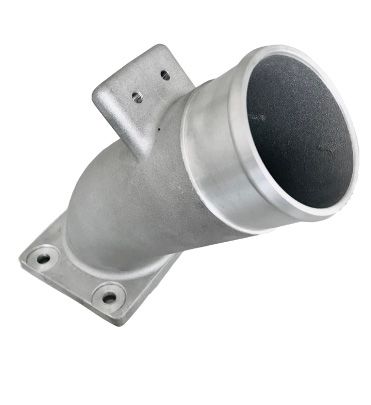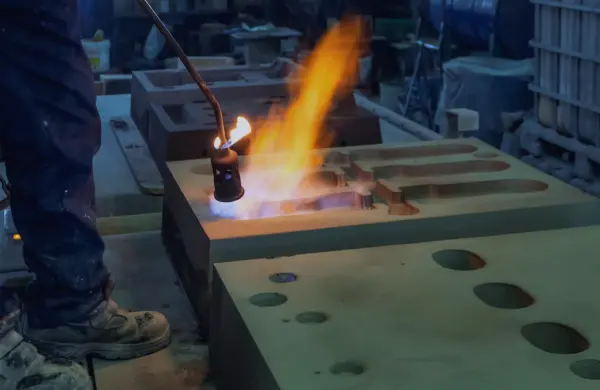Some Known Factual Statements About Alcast Company
Some Known Factual Statements About Alcast Company
Blog Article
Some Known Questions About Alcast Company.
Table of ContentsThe Greatest Guide To Alcast CompanyGetting The Alcast Company To WorkGet This Report on Alcast CompanySome Known Factual Statements About Alcast Company How Alcast Company can Save You Time, Stress, and Money.See This Report on Alcast Company
The refined difference depends on the chemical material. Chemical Comparison of Cast Light weight aluminum Alloys Silicon promotes castability by minimizing the alloy's melting temperature level and improving fluidness throughout spreading. It plays a crucial role in permitting complex mold and mildews to be filled up accurately. Additionally, silicon contributes to the alloy's stamina and put on resistance, making it important in applications where resilience is critical, such as automotive components and engine parts.It likewise boosts the machinability of the alloy, making it less complicated to refine into finished products. This way, iron adds to the total workability of light weight aluminum alloys. Copper raises electric conductivity, making it beneficial in electrical applications. It likewise enhances rust resistance and contributes to the alloy's overall stamina.
Manganese adds to the strength of aluminum alloys and enhances workability (aluminum foundry). It is commonly used in wrought light weight aluminum products like sheets, extrusions, and accounts. The presence of manganese aids in the alloy's formability and resistance to splitting throughout construction procedures. Magnesium is a light-weight element that provides toughness and effect resistance to light weight aluminum alloys.
The Ultimate Guide To Alcast Company
Zinc boosts the castability of light weight aluminum alloys and aids control the solidification procedure during spreading. It improves the alloy's stamina and solidity.

The main thermal conductivity, tensile toughness, yield toughness, and elongation vary. Select suitable basic materials according to the performance of the target item created. Amongst the above alloys, A356 has the highest possible thermal conductivity, and A380 and ADC12 have the most affordable. The tensile restriction is the opposite. A360 has the ideal return toughness and the highest possible prolongation rate.
Fascination About Alcast Company

In accuracy casting, 6063 is appropriate for applications where elaborate geometries and high-grade surface area finishes are vital. Examples include telecommunication units, where the alloy's remarkable formability permits for streamlined and cosmetically pleasing styles while keeping structural integrity. In the Lighting Solutions market, precision-cast 6063 components create classy and reliable illumination fixtures that need complex shapes and excellent thermal performance.
The A360 shows remarkable prolongation, making it perfect for complicated and thin-walled parts. In precision casting applications, A360 is fit for markets such as Customer Electronic Devices, Telecommunication, and Power Tools.
Alcast Company Things To Know Before You Buy
Its special homes make A360 a useful option for accuracy casting in these markets, improving product durability and high quality. Aluminum alloy 380, or A380, is an extensively utilized spreading alloy with numerous unique characteristics. It offers outstanding castability, making it an ideal selection for precision casting. A380 shows good fluidity when molten, guaranteeing complex and thorough mold and mildews are precisely replicated.
In accuracy spreading, aluminum 413 shines in the Consumer Electronics and Power Tools sectors. This alloy's remarkable deterioration resistance makes it an excellent option for outdoor applications, ensuring resilient, resilient products in the discussed markets.
The Single Strategy To Use For Alcast Company
The light weight aluminum alloy you choose will substantially influence both the spreading process and the homes of the last item. Due to the fact that of this, you should make your decision very carefully and take an enlightened method.
Establishing the most ideal aluminum alloy for your application will certainly mean considering a vast variety of features. These comparative alloy characteristics adhere to the North American Die Spreading Organization's standards, and we have actually divided them right into two classifications. The initial category addresses alloy attributes that influence the production procedure. The second covers characteristics affecting the homes of the end product.
The Ultimate Guide To Alcast Company
The alloy you pick for die casting directly influences numerous facets of the casting process, like just how simple the alloy is to deal with and if it is prone to casting defects. Hot cracking, also referred to as solidification fracturing, is a common die spreading flaw for light weight aluminum alloys that can result in inner or surface-level splits or fractures.
Particular light weight aluminum alloys are a lot more prone to warm splitting than others, and your selection ought to consider this. Another typical defect discovered in the die spreading of aluminum is pass away soldering, which is when the cast stays with the die wall surfaces and makes ejection tough. It can harm both the cast and the die, so you need to try to find alloys with high anti-soldering residential properties.
Corrosion resistance, which is already a notable quality of aluminum, can differ significantly from alloy to alloy and is an essential characteristic to think about depending on the environmental problems your item will be revealed to (Aluminum Castings). Put on resistance is another residential property commonly sought in light weight aluminum products and can set apart some alloys
Report this page